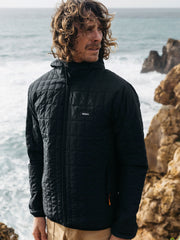I met Tim and Apish back in 2009 when Waves for Change was still in its infancy on a surf trip round South Africa and it was evident from even that first experience, they were on to something special. I had no idea I would end up working so closely with them in the future but certainly the power of what they were doing had a lasting impact on me and the surf therapy path I eventually took.
If we fast forward from 2009, I have since spent the entirety of my professional life involved in what we call surf therapy. I founded and ran the Wave Project in Scotland for 5 years, supporting young people facing a range of mental health challenges. I undertook a part time MSc in my last few years at the Wave Project due to curiosity as to what was having such a positive effect on beaches in Scotland, even when the snow was falling! I didn’t find the answers I was looking for in said studies which led to my current role as a full-time researcher undertaking the world’s first PhD exclusively focused on surf therapy. It was this role that led me back to Waves for Change and the privilege of working alongside Tim and Apish.
I think in the UK we really take the relationship we can have with the ocean for granted and it is easy to be unaware of the barriers other people may face in developing such a relationship. Easkey Britton’s recent systematic review has highlighted the evidence-based positive impact that a relationship to ‘blue space’ can have for our health and wellbeing. The barriers that people can face in accessing these positive impacts are varied.
I recently spent 3 months conducting research alongside the Waves for Change team in Liberia and one particular story highlighted the barriers that the amazing team in Harper had to overcome to establish their surf therapy program. One of the first sessions the team were running they had 4 or 5 mentors supporting 20 children in a line, holding hands and wading into the water. The activity is called Immersion and aims to teach participants about peer support and empathy in listening to each other when they start to feel uncomfortable in the water.

















































































